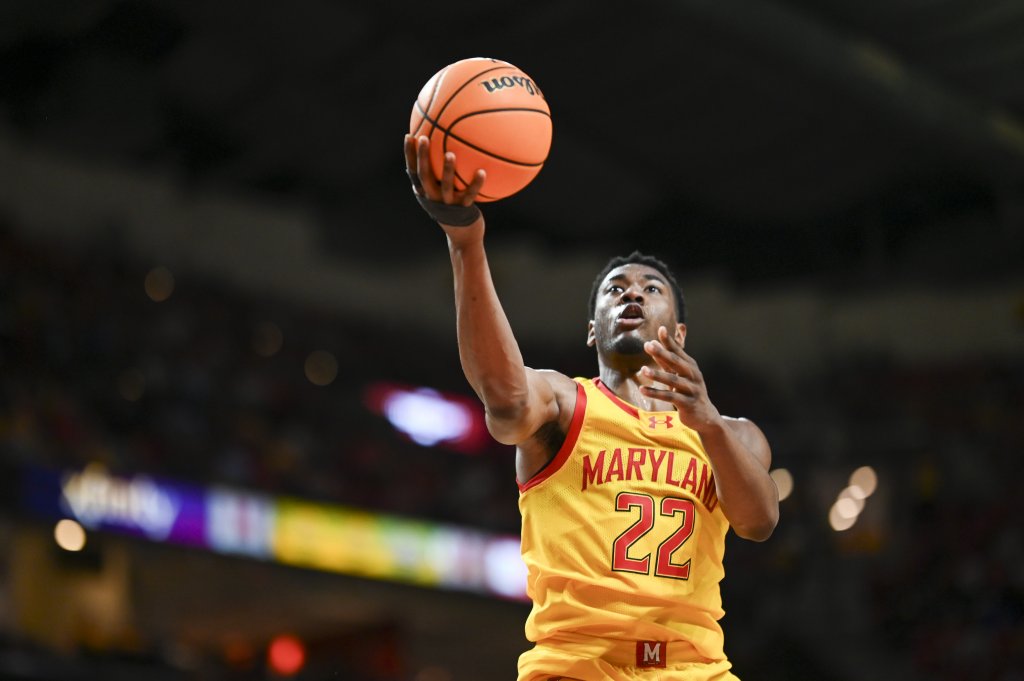Maryland Latest State to Prohibit Sports Bets on Individual College Player Props
by Robert Linnehan in Sports Betting News
Updated Mar 4, 2024 · 8:48 AM PST
Tommy Gilligan-USA TODAY SportsMaryland has joined a growing list of states to prohibits bets on college player propsMaryland Lottery and Gaming directed sportsbook operators to remove markets on Friday, March 1Designed to curb potential harassment against college athletes
Maryland is the latest state to take steps to protect its college athletes from potential harassment.
Maryland Lottery and Gaming directed state sportsbook operators to stop taking bets on individuals college player props as of Friday, March 1. The intent, a Maryland Lottery and Gaming spokesperson said, is to protect college athletes against potential harassment.
“The intent is to focus college sports wagers on teams, rather than on the individual athletes,” the spokesperson said.
Individual College Awards Markets Still Available
The latest prohibition does not include individual college awards, such as the Heisman Trophy. These types of sports bets are still available for Maryland sportsbook operators to offer.
Any college player prop placed in Maryland on or before Feb. 29, 2024, will be honored.
Maryland is the latest state to take action against potential harassment of its college athletes. Maryland is the 26th state to prohibit or limit player-specific prop bets on individual college athlete performance.
Ohio’s casino control commission recently approved a request from the NCAA to prohibit prop bets on individual college athletes.
Ohio Casino Control Commission Executive Director Matt Schuler approved the request on Friday, Feb. 23. Schuler ruled that the NCAA’s request showed “good cause” to prohibit bets on college player props. The official request was made after months of discussion and numerous reports of social media threats made to collegiate athletes, according to Gov. Mike DeWine (D).
“I have determined that good cause supports the NCAA’s request to prohibit player-specific prop bets on intercollegiate athletics competitions because the NCAA’s request will safeguard the integrity of sports gaming and will be in the best interests of the public,” Schuler ruled.
Following his official decision, the state will prohibit the following:
Any proposition or “prop” bet on an individual athlete’s performance or statistics participating in a sporting event governed by the NCAA. Only proposition bets based on full team statistical results are permitted.Any full team proposition bet on a sporting event governed by the NCAA that, while not based solely on an individual, would on average depend 50% or more on the statistical performance of one or two athletes on the team to determine the outcome. For example, whether Team A will gain over 200 passing yards in a football game would predominantly rely on the quarterback’s yardage, likely over 50% dependence
West Virginia Also Taking Steps to Protect Athletes
West Virginial politicians are potentially taking legislative steps to protect its athletes as well.
The West Virginia House of Delegates last week approved HB 4700 by a 90-1 vote, with nine abstentions, to give the West Virginia Lottery Commission the power to ban individuals from sports betting if they’re found harassing athletes, coaches, or officials at a sporting event.
Sports betting is a privilege for West Virginia residents, Delegate Shawn Fluharty (D-Ohio), the main author of the bill, told Sports Betting Dime. The state has the responsibility to protect athletes and curb harmful behavior.
This legislation, he noted, will give the West Virginia Lottery Commission the power to ensure harassment is not tolerated.
If approved by the Senate, the West Virginia Lottery Commission will officially create a legislative rule detailing why individuals could potentially be banned from participating in sports betting in the state. These reason will include, but not be limited to, the following:
A prior conviction of this codeA prior violation of an order from the lottery commissionIf the commission determines that the person poses a threat to the safety of patrons or participants in a sporting event or determines that the person has engaged in a pattern of conduct of harassing a sports official, coach, or any participants.


